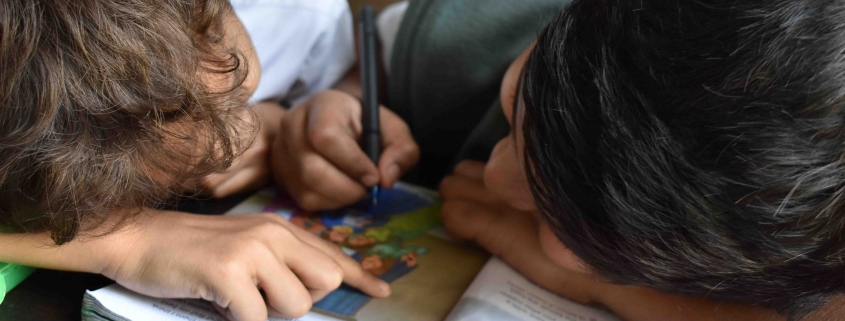Supporting our children as schools re-start
By Peter Hamill and Robert Dunne.
Starting school again in autumn is always a time of change, new teachers, new subjects, new routines, exams, perhaps a new school. How much more is this true in 2020?
Going to school has become a huge challenge for children, parents, school staff and those in management, and many parents and carers having managed lockdown may well be wondering what this next phase has in store. As the schools look to reopen, advice is available to prepare their children to return to education in this new environment.
The Republic of Ireland’s National Educational Psychological Service (NEPS) describes this year as “a time of change, with new rules and routines to learn, in order to keep everyone safe.”
Change is a process, not an event, and it takes time. It is often helpful where possible to take things in small bite sizes, one day at a time, and to encourage children and young people to do this, particularly in the early weeks.
Try to build in as much certainty as possible in a time that is so uncertain. In time, a new routine will develop, and routines have value, in and of themselves for mental health because they provide predictability.
Communication is important and everyone should be encouraged to communicate how they are doing, including when and how they are struggling with the pandemic, bearing in mind that it is completely normal to feel anxious during a time of change.
Schools have developed countless creative approaches locally and have been encouraged nationally to share pictures of what the school building will look like with families and staff before the re-opening takes place. Being able to imagine the physical space is likely to be helpful to the student.
Young people are resilient and learn from others. This challenging time provides important opportunities for parents and educators to model responses and coping strategies that will help students to learn helpful ways to manage their own fears and anxieties.
Mental health matters and everyone will need continued support as they adjust to the new term. People respond to crises in different ways, and government public health websites provide pointers to help which include the importance of keeping in touch with friends, relatives, and neighbours, talking about worries, avoiding information overload, and keeping active.
The Northern Ireland Executive’s mental health advice gives specific guidance on talking with children about the pandemic, including not being afraid to ask children what they have heard about the outbreak.
Try to answer a child’s questions in a way that is appropriate to their stage in life and avoid giving them too much information.
The advice across the island is also to avoid over-exposure to news coverage of the virus. Creative activities, such as playing or drawing, can help children to express how they feel about a crisis which has been without parallel in most of our lives.
Further information on children’s mental health is available at www.gov.ie/backtoschool and www.nidirect.gov.uk/coronavirus
Dr Peter Hamill is Secretary to the Board of Education (Northern Ireland) and Robert Dunne is Safeguarding Officer for the Republic of Ireland.
This article was first published in the Church of Ireland Gazette.
Photo credit: Andrew Ebrahim/Unsplash


